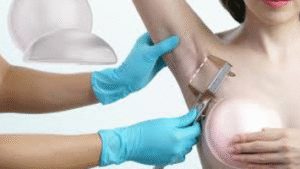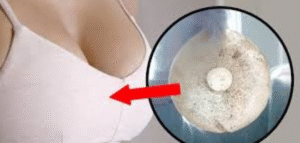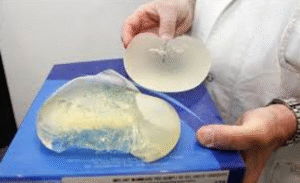Have you noticed the growing conversation around breast implant removal on social media lately? From celebrities openly discussing their explant journeys to everyday women sharing their stories, there’s a significant shift happening in how we view breast augmentation. The trend of women choosing to remove their breast implants is gaining momentum, and the reasons behind this decision are as diverse as the women making them.
Whether you’re considering explant surgery yourself or simply curious about this growing trend, understanding the motivations and experiences of women who’ve made this choice can provide valuable insights into modern beauty standards and personal health priorities.

The Rising Trend of Breast Implant Removal
The statistics tell a compelling story. According to recent data from plastic surgery organizations, breast implant removal procedures have increased significantly over the past five years. This surge isn’t just a temporary trend but reflects a deeper shift in how women view their bodies, health, and personal choices.
Key factors contributing to this increase include:
- Growing awareness of potential complications
- Body positivity movements and shifting beauty standards
- Improved access to information through social media
- Better understanding of long-term health implications
- Lifestyle changes and personal evolution
The conversation around breast implant removal has become more mainstream, with women feeling empowered to share their experiences openly. This transparency has created a supportive community where others can learn about the realities of both having and removing breast implants.
Medical Reasons Women Choose Implant Removal
Breast Implant Illness (BII)
Breast implant illness is one of the most talked-about reasons why women are opting to have their breast implants removed. While not officially recognized as a medical diagnosis by all healthcare organizations, many women report experiencing a constellation of symptoms they attribute to their implants.
Common symptoms associated with BII include:
- Chronic fatigue and joint pain
- Brain fog and memory issues
- Autoimmune-like symptoms
- Sleep disturbances
- Hair loss and skin problems
- Anxiety and depression
Women experiencing these symptoms often report significant improvement after implant removal, though the scientific community continues to study the connection between implants and these health issues.
Capsular Contracture
Capsular contracture occurs when scar tissue forms around the implant, causing the breast to feel hard and potentially painful. This complication can develop years after the initial surgery and may require implant removal for resolution.
Signs of capsular contracture:
- Breast firmness or hardness
- Changes in breast shape
- Pain or discomfort
- Visible distortion of the breast
Implant Rupture and Leakage
Over time, silicone and saline implants may both burst or leak. While silicone leaks can be ‘silent’ and may go unnoticed without routine MRI examinations, saline leaks are instantly apparent when the breast deflates.
Risks associated with implant rupture:
- Inflammatory reactions
- Changes in breast shape and size
- Potential migration of silicone gel
- Need for additional surgery
ALCL (Anaplastic Large Cell Lymphoma)
Though rare, some textured breast implants have been associated with a type of lymphoma called ALCL. This has led some women to choose removal as a precautionary measure, particularly those with textured implants.

Personal and Lifestyle Reasons for Implant Removal
Evolving Beauty Standards
Society’s perception of beauty has shifted significantly in recent years. The body positivity movement has encouraged women to embrace their natural bodies, leading many to reconsider whether breast implants align with their current values and self-image.
Cultural shifts influencing decisions:
- Emphasis on natural beauty and authenticity
- Reduced stigma around smaller breast sizes
- Celebrity influence in normalizing natural bodies
- Social media movements promoting body acceptance
Lifestyle Changes
As women’s lives evolve, their priorities often shift. Many find that breast implants no longer fit their lifestyle or personal goals.
Lifestyle factors prompting removal:
- Increased focus on health and wellness
- Desire for more comfortable physical activity
- Changes in career or personal circumstances
- Relationship changes and personal growth
Aging and Maintenance Concerns
Breast implants are not lifetime devices and typically require replacement or removal after 10-15 years. As women age, some decide against continued maintenance and opt for removal instead.
Aging-related considerations:
- Cost of ongoing maintenance
- Desire to avoid future surgeries
- Natural body changes with age
- Simplified healthcare needs
The Physical and Emotional Journey of Explant Surgery

What to Expect During Recovery
The length of recovery following breast implant removal varies based on whether fat grafting or a breast lift are done. Most women experience a relatively straightforward recovery compared to their initial augmentation.
Recovery timeline typically includes:
- Initial healing period of 1-2 weeks
- A gradual return to regular activities over a period of four to six weeks
- Full recovery and final results after 3-6 months
- Possible temporary changes in breast appearance
Emotional Aspects of Removal
The decision to remove breast implants often involves complex emotions. Women may experience excitement about returning to their natural state alongside concerns about body image changes.
Common emotional experiences:
- Relief from health concerns
- Anxiety about appearance changes
- The capacity to manage one’s own well-being
- Adjustment period to natural breast size
Body Image Adaptation
Adjusting to life without breast implants requires time and often involves redefining personal beauty standards. Many women report increased body confidence and comfort after the adjustment period.
Financial Considerations and Insurance Coverage
The cost of breast implant removal varies widely depending on location, surgeon experience, and additional procedures needed. Women are better able to make judgments when they are aware of the financial factors.
Factors affecting cost:
- Geographic location and surgeon fees
- Complexity of the removal procedure
- Need for additional procedures like breast lifts
- Anesthesia and facility fees
Insurance considerations:
- Medical necessity versus cosmetic choice
- Documentation requirements for coverage
- Pre-authorization processes
- Appeal procedures for denied claims
Choosing the Right Surgeon for Explant Surgery
Choosing a skilled surgeon is essential for the best outcome. Not all plastic surgeons specialize in explant procedures, making research essential.
Important qualifications to consider:
- Board certification in plastic surgery
- Specific experience with explant procedures
- Understanding of breast implant illness concerns
- Good communication and patient care approach
Questions to ask potential surgeons:
- How many explant procedures do you perform annually?
- What is your approach to capsule removal?
- How do you respond to worries over the appearance of the breasts following removal?
- What are the potential risks and complications?
Alternative Options to Complete Removal
Some women explore alternatives to complete implant removal, depending on their specific concerns and goals.
Possible alternatives include:
- Implant replacement with different types or sizes
- Combination procedures with fat grafting
- Breast lift surgery with smaller implants
- Gradual downsizing approach
The Function of Support Networks and Social Media
Social media has played a significant role in the breast implant removal trend, providing platforms for women to share experiences and find support.
Benefits of online communities:
- Access to real experiences and outcomes
- Emotional support during decision-making
- Information about surgeons and procedures
- Reduced isolation and stigma
Considerations for social media information:
- Varying individual experiences and outcomes
- Need to verify medical information with professionals
- Potential for confirmation bias
- Importance of balanced perspectives
FAQs
Is breast implant removal covered by insurance?
Insurance coverage for breast implant removal depends on whether the procedure is considered medically necessary. If removal is recommended due to complications like capsular contracture, rupture, or other medical issues, insurance may cover the procedure. However, removal for cosmetic reasons or unproven conditions like breast implant illness typically isn’t covered.
Will my breasts look normal after implant removal?
Breast appearance after implant removal varies significantly depending on factors like original breast size, implant size and duration, skin elasticity, and age. Some women are satisfied with their natural appearance, while others may experience sagging or volume loss.
Additional procedures like breast lifts or fat grafting can help improve appearance if desired. Most women adapt well to their post-explant appearance over time.
How much time does it take to heal after having a breast implant removed?
Recovery from breast implant removal typically takes 4-6 weeks for most normal activities, with complete healing occurring over 3-6 months. The most severe discomfort and activity limitations occur within the first week.
Most women can return to desk work within a few days to a week, while heavy lifting and vigorous exercise should be avoided for 4-6 weeks. If more procedures are done at the same time, recovery time could be prolonged.
When implants are removed, what happens to the surrounding scar tissue?
The scar tissue capsule that forms around breast implants can be partially or completely removed during explant surgery, depending on the surgeon’s recommendation and the patient’s specific situation. Complete capsule removal (total capsulectomy) is often preferred when addressing concerns about breast implant illness or when the capsule is thick or calcified.
The best course of action will be decided by your surgeon depending on your unique situation.
Can breast implants cause autoimmune symptoms?
While breast implant illness isn’t officially recognized as a medical diagnosis by major medical organizations, many women report autoimmune-like symptoms they attribute to their implants. These may include joint pain, fatigue, brain fog, and other systemic symptoms.
Some women experience symptom improvement after implant removal, though the scientific evidence for a direct causal relationship remains limited. If you’re experiencing concerning symptoms, consult with healthcare providers familiar with implant-related concerns.
Making an Informed Decision
Removing breast implants is a very personal decision that should be guided by personal values, health concerns, and unique circumstances. Understanding the various factors that influence this decision helps women make choices aligned with their current life stage and priorities.
Steps for making an informed decision:
- Examine the process and possible results in detail.
- Consult with qualified plastic surgeons experienced in explant surgery
- Take into account lifestyle, beauty, and personal health objectives.
- Evaluate financial implications and insurance coverage
- Connect with support networks and other women’s experiences
Conclusion…
The trend of women choosing to remove their breast implants reflects a broader shift toward prioritizing personal health, authenticity, and individual choice over external beauty standards. Understanding why more women are choosing to remove their breast implants helps illuminate the complex factors influencing modern healthcare decisions.
From breast implant illness concerns to changing beauty standards, the reasons are as varied as the women making these choices. As this trend continues, it serves as a powerful reminder that personal health and well-being should always be the primary consideration in any healthcare decision.
For women considering breast implant removal, remember that this choice represents an opportunity to prioritize your health, comfort, and personal values. With proper research, qualified medical care, and realistic expectations, explant surgery can be a positive step toward improved quality of life and peace of mind.



